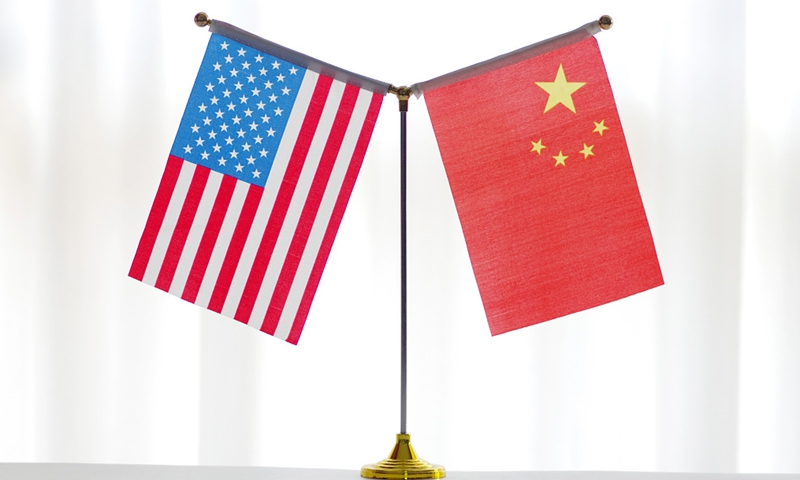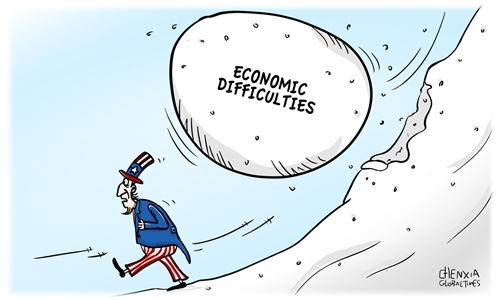
China US File Photo:CFP
The Biden administration may think reckless suppression on Chinese companies and industries will help them win the strategic rivalry with China, but in reality, their abuse of sanctions is threatening to inflict further damage on US economy in the form of the aggravating supply chain and inflation problems.
The US Commerce Department said on Monday it had added 33 Chinese entities to its so-called "unverified list," which means more restrictions and procedures for those firms when it comes to purchasing goods from American companies.
This was not the first time that the Biden administration imposed a number of restrictions against Chinese companies on grounds of alleged national security concerns. In December, the US Treasury Department added eight Chinese companies to an investment blacklist. In November, the US government added 12 Chinese entities to its entity list. In June, US President Joe Biden signed an executive order banning US investment in 59 Chinese companies.
While these sanctions, which laid bare Washington's purpose of slowing China's pace in terms of high-tech upgrades, will probably cause difficulties or losses to the Chinese companies in question, the pattern of the globalization suggests the move will backfire on the US economy.
The trade between China and the US is mutually beneficial, so disrupting bilateral trade will not just inflict pain on one side only. The Chinese demand has long provided American high-tech companies with a huge source of revenue, allowing them to keep pouring money into cutting-edge research and development. By targeting an increasing number of Chinese technology companies, Washington is undermining its own R&D sustainability to a certain extent.
Also, given the continuing supply chain mess in the US over the past year, it is conceivable that US unilateral sanctions on Chinese businesses and industries like Xinjiang cotton products will actually affect the US more by further aggravating its inflation crisis, which may even risk a collapse of the US economy and consumer market. This is because these Chinese companies and industries that are facing supply-chain cut-off are inextricably linked to the Chinese manufacturing, an indispensable part of the global industrial chain. For companies being affected by the supply-chain disruption, whether in China or in the US, it takes time to find alternatives, which will inevitably result in higher costs.
Take US sanctions on Chinese solar companies as an example. In June 2021, the US government ordered a ban on US imports of a key solar panel material from Hoshine Silicon Industry Co, and put it together with several other solar companies on an entity list, citing the baseless claim of "forced labor" in the Xinjiang region. The move has severely disrupted the global photovoltaic industrial chain, which is ultimately reflected in the rising prices of photovoltaic products.
On the other hand, the US economy cannot afford the consequences of the rising prices for American consumers as how to rein in the skyrocketing inflation has already become the biggest problem for the Biden administration. A median projection in a Bloomberg survey of economists forecast the January CPI at 7.3 percent from a year ago, the largest annual advance since early 1982.
Against this dire backdrop, the US economy has little room to allow the Biden administration to continue abusing sanctions against China, given the fact that there are so many products coming from China or composed of Chinese parts in the US market.
Trade should be reciprocal, not something China begs from the US. If the US stays on its course of pursuing technological decoupling, China could also be not that cooperative in selling what the US wants, at least not cheaply.



